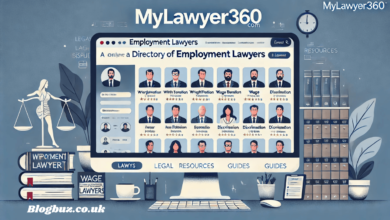California Wage and Hour Disputes: The Role of an Employer Defense Lawyer

Running a business in California comes with a long list of responsibilities—and staying compliant with wage and hour laws is near the top. The state’s labor regulations are among the most protective in the country, aiming to safeguard workers from being overworked, underpaid, or misclassified. But for employers, the sheer volume and complexity of these rules can create real legal headaches. It’s not uncommon for even diligent companies to get tripped up by technicalities. And when that happens, the legal and financial consequences can be serious. With extensive experience defending businesses across industries, The Nakase Law Firm provides employer defense attorney services with the tools needed to navigate the evolving regulatory terrain of California labor laws.
Many California companies—especially small and midsize businesses—don’t realize how vulnerable they are until they’re hit with a claim. Whether it’s about unpaid overtime, meal breaks, or misclassification, these claims can quickly escalate into expensive lawsuits. That’s where a California wage and hour employer defense lawyer becomes a crucial ally. California Business Lawyer & Corporate Lawyer offers California wage and hour employer defense lawyer services to employers seeking strategic solutions for wage-related litigation.
An Overview of California’s Wage and Hour Rules
Employers in the Golden State must comply with a patchwork of state and local labor laws that cover everything from how much employees are paid to when they can take breaks. The baseline is the California Labor Code, which is enforced by the Division of Labor Standards Enforcement (DLSE). On top of that, many cities and counties add their own minimum wage and sick leave laws, which makes staying compliant even more challenging.
As of 2025, the statewide minimum wage is $16 per hour for all employers. But that’s just the start. Non-exempt employees—those who aren’t classified as salaried or exempt—must be paid overtime when they work more than 8 hours in a day or over 40 hours in a week. Double time kicks in when someone works more than 12 hours in a single day.
There are also strict rules about meal and rest breaks. Employees working more than five hours are entitled to at least one 30-minute unpaid meal break, and if their shift exceeds ten hours, they get a second one. In addition, employers must provide a 10-minute paid rest break for every four hours worked.
Failing to follow these rules, even accidentally, can result in penalties, back pay, and potentially damaging lawsuits—especially when claims turn into class actions.
The Kinds of Claims Employers Often Face
Even when employers try their best to follow the law, certain issues come up time and again. These are some of the most common wage and hour problems businesses in California encounter:
Misclassification Issues:
Probably the most frequent—and costly—mistake employers make is misclassifying workers. Some are treated as independent contractors when they legally should be employees. Others are incorrectly labeled as exempt from overtime. California’s use of the “ABC Test” under AB 5 has made it harder than ever to legally classify someone as an independent contractor.
Off-the-Clock Work:
Employees may claim they were required to work before or after their official shifts, or during unpaid breaks. If time records don’t reflect this—and in many cases, they don’t—employers can be on the hook for back pay.
Meal and Rest Break Violations:
These claims are rampant in industries like retail, food service, and healthcare. It’s not enough to simply offer breaks; employers must ensure that workers actually take them. If not, they may owe premium pay for each violation.
Overtime Errors:
Incorrectly calculating or denying overtime pay is another major issue. Employers sometimes forget to include bonuses or commissions in the regular rate of pay, which leads to underpayment.
Problems With Timekeeping Systems:
Sometimes, time tracking software rounds hours in a way that doesn’t comply with labor laws. In other cases, manual timekeeping leaves too much room for error. Either way, inaccurate records can become a serious liability.
Final Paycheck Delays:
California has very strict rules about when employees must receive their final paycheck. If you terminate someone, you need to pay all their wages immediately. If they quit, you usually have 72 hours. Missing these deadlines—even by a day—can result in steep waiting time penalties.
How a Defense Lawyer Helps Employers Stay Out of Trouble
When problems arise, a California wage and hour employer defense lawyer becomes more than just a legal representative—they become a strategic partner. Their job isn’t just to put out fires after a claim is filed, but also to prevent them from sparking in the first place.
Here’s how a skilled defense attorney supports employers:
Compliance Reviews and Preventative Advice:
Attorneys help businesses understand their obligations and put systems in place to stay compliant. This might involve reviewing policies, updating employee handbooks, or training managers on break schedules and wage calculations.
Clarifying Classification Rules:
Since misclassification is a hot-button issue, lawyers often assist in reviewing job descriptions and duties to determine who qualifies as exempt and who doesn’t.
Responding to Claims and Investigations:
If a complaint is filed with the DLSE or a lawsuit is served, your defense attorney will take over the response. This includes gathering documents, preparing for hearings, and managing the overall legal strategy.
Negotiating Settlements:
Not every dispute goes to trial. In many cases, it’s smarter to settle. A good lawyer will negotiate on your behalf, aiming to resolve the matter efficiently and cost-effectively.
Fighting Class Actions:
California is notorious for class action lawsuits in the wage and hour space. Defense lawyers know how to challenge class certification and minimize potential exposure for their clients.
Litigation Strategy Development:
Each case is different, so the best lawyers tailor their defense strategy to fit the circumstances. Whether that means leveraging arbitration agreements or pushing for dismissal, they look for the smartest way to protect your business.
What Employers Can Do to Avoid Claims Altogether
Avoiding legal issues in the first place is always better than dealing with them after the fact. Here are some practical steps employers can take—ideally with the guidance of legal counsel:
- Run Periodic Audits: A routine check-up on your payroll and scheduling systems can uncover issues before they snowball into legal claims.
- Train Your Managers: Your policies are only as good as the people enforcing them. Proper training can make a huge difference.
- Use Reliable Timekeeping Tools: Invest in time-tracking technology that accurately records hours worked and break times.
- Create Clear Employment Contracts: Spell out responsibilities, pay rates, and dispute resolution procedures in writing.
- Keep Up With Changing Laws: Labor laws evolve frequently. Make it a point to stay informed or consult with your attorney regularly.
Industries That See the Most Wage and Hour Claims
Some sectors get hit harder than others. If you’re in one of the following industries, you’re especially vulnerable:
- Restaurants and hospitality
- Retail and grocery
- Construction
- Healthcare and nursing
- Transportation and warehousing
- Technology, especially startups and gig-based platforms
These businesses often have large non-exempt workforces and face tight operational demands, which makes compliance harder and litigation riskier.
What to Look for in an Employer Defense Attorney
Choosing the right lawyer isn’t just about finding someone with a law degree—it’s about finding a partner who understands your business and the legal landscape you operate in. Consider:
- Do they specialize in California labor law?
- Have they handled similar cases in your industry?
- Do they have a record of favorable outcomes?
- Are they proactive and communicative?
- Do they balance legal expertise with practical advice?
An experienced attorney won’t just tell you what’s legal—they’ll help you figure out what’s smart.
Final Thoughts
California’s wage and hour laws may favor employees, but that doesn’t mean employers are powerless. With the right legal guidance, businesses can stay compliant, avoid disputes, and protect themselves from costly litigation. A California wage and hour employer defense lawyer provides both a shield against legal claims and a compass for navigating the state’s complex labor landscape.
When your business’s future is on the line, having the right legal ally isn’t just helpful—it’s essential.




